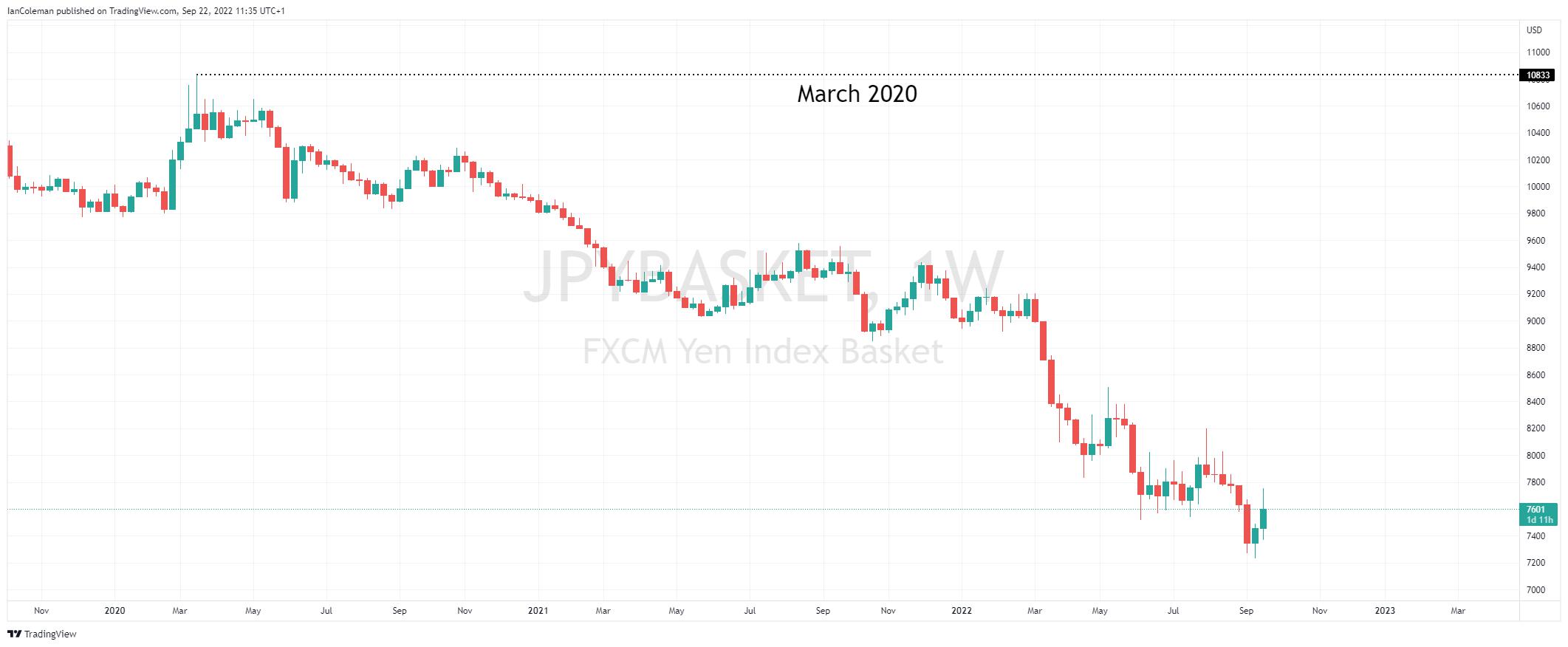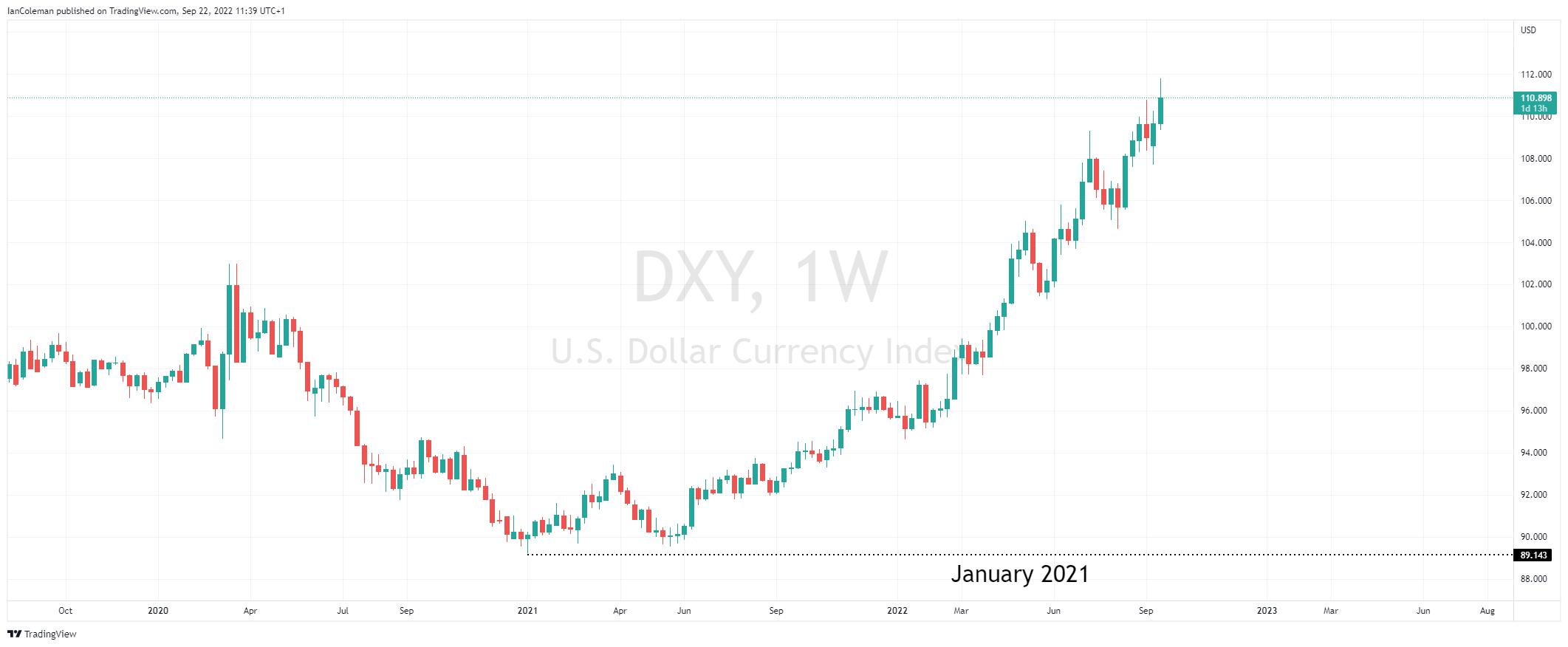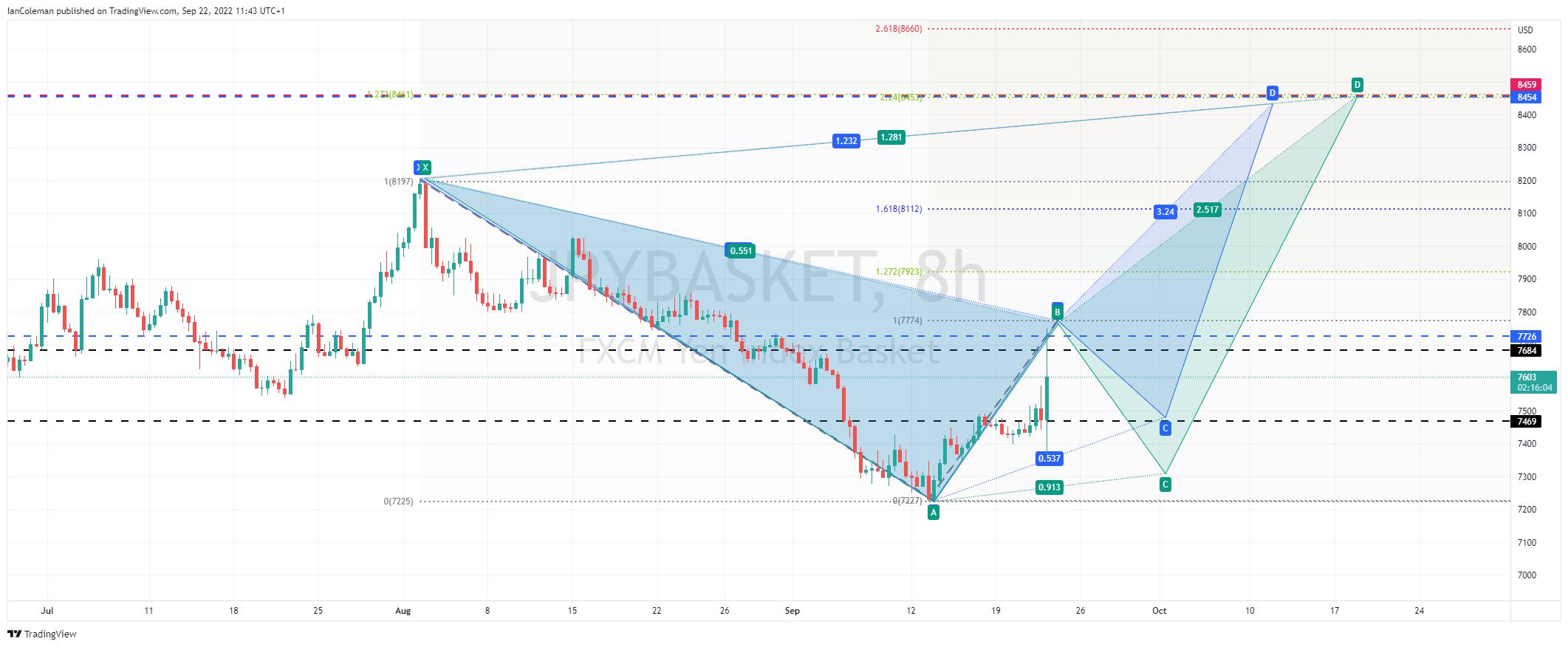- English
- 简体中文
- 繁体中文
- ไทย
- Tiếng Việt
- Español
- Português
- لغة عربية
Learn to trade
On the 14th of September, the Bank of Japan carried out a ‘check’ on currency rates, a move believed to be the first step on the way to a Yen intervention.On Thursday the 22nd of September, the BoJ intervened in the foreign exchange markets to stem the fall of the Japanese yen.
Bank of Japan keeps ultra-low rates
Earlier, the BoJ kept rates at -0.1% combined with a ‘dovish’ policy guidance, clearly moving in the opposite direction to other central bank policies. On the other hand, the United States Federal Reverse, the FED, hiked rates from 2.5% to 3.25%, the highest level since 2008.
This divergence in policy has seen the likes of USDJPY trading to the highest level since 1988.
A look at the fall of the Yen and the rise of the US Dollar
Looking at the YEN single currency chart, we can clearly see an aggressive downward trend from March 2020. A stalling in the Yen selloff was seen last week, but this has done little to deter the USDJPY rally with another boost from Yellen and his crew yesterday.

Figure 1 TradingView JPY Basket
We have witnessed the DXY (USD basket) moving aggressively in the opposite direction since January 2021. There is no clear indication that this upward move is coming to an end.

Figure 2 TradingView DXY USD Basket
What now for the Yen basket?
Will the Yen rally hold? After the initial burst to the upside the YEN buying has stalled. However, if the swing low from 13th September holds, the single currency chart highlights a possible bullish move over the next few days, and possibly weeks, towards a Fibonacci confluence area. Does this suggest that ‘Buy the Dip’ should now be the strategy for Yen?

Figure 3 TradingView JPY Basket Possible BAT formation
To learn more about technical analysis, click here.
Related articles
The material provided here has not been prepared in accordance with legal requirements designed to promote the independence of investment research and as such is considered to be a marketing communication. Whilst it is not subject to any prohibition on dealing ahead of the dissemination of investment research we will not seek to take any advantage before providing it to our clients.
Pepperstone doesn’t represent that the material provided here is accurate, current or complete, and therefore shouldn’t be relied upon as such. The information, whether from a third party or not, isn’t to be considered as a recommendation; or an offer to buy or sell; or the solicitation of an offer to buy or sell any security, financial product or instrument; or to participate in any particular trading strategy. It does not take into account readers’ financial situation or investment objectives. We advise any readers of this content to seek their own advice. Without the approval of Pepperstone, reproduction or redistribution of this information isn’t permitted.

